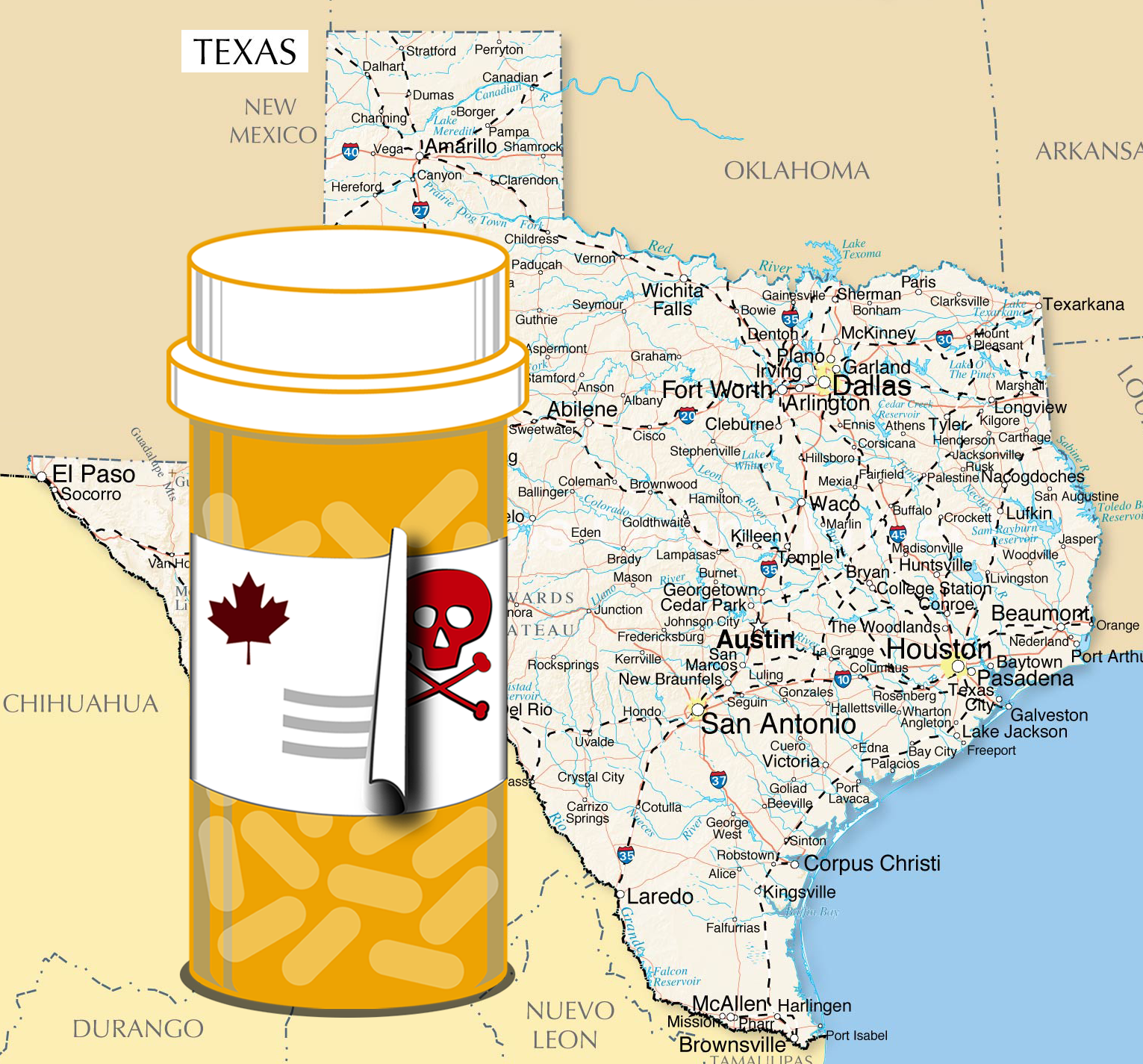Drug Importation in Texas: An Overview

Current status:
The Texas Legislature introduced House Bill 25, the Wholesale Prescription Drug Importation Act, in November 2022. PSM shared an analysis of the bill with the Texas House committee that you can read.
The bill which has been signed by the Governor, will require the executive commissioner of Texas's Health and Human Services Commission to take action to establish Canadian drug importation beginning in September 2023. The agency shared a report about the program in December 2023.
Synopsis / Media Contact
H.B. 25 requires Texas’ Health and Human Services Commission to design a program for bulk importing prescription medicines under 21 USC 384 of the U.S. Food, Drug, and Cosmetics Act, more commonly known as a Section 804 State Importation Program (SIP).
For over two decades these programs have proven to be impossible to build safely because:
- Canada refuses to release bulk medications to these programs and has taken steps to restrict U.S. access to their drug supply;
- Canada does not have a Track and Trace program;
- The cost of testing imported medication far outweighs the savings; and
- Medicaid programs already get medicine cheaper than Canadian provinces, reducing any potential savings.
This legislation has been pushed without concern for the consequences. As many states discovered during the pandemic trying to buy hard-to-find N95 masks, buying medical products that aren't readily available creates great risk of counterfeit products. PSM believes that the Texas legislature is forcing it's patients and pharmacists to take unacceptable risks with patient health and pharmacist liability by enacting this program without looking at the risks.
PSM Executive Director Shabbir Imber Safdar is available to do interviews to explain the risks of this program to media. Contact him through editors@safemedicines.org and specify your print deadline.
Official actions and statements
- December 1, 2023: Texas Health and Human Services submits its Wholesale Prescription Drug Importation Program Report to the governor and state legislature.
Planning documents
- HB 25: Text | Fiscal Note | Bill Analysis
Background / resources
Just learning about the Texas foreign drug importation proposal? Start with some of these resources that outline the safety issues.
PSM Materials:
Op-eds from the Experts
In a January 23, 2019 editorial published in The Hill Peter Pitts, a former FDA associate commissioner and the president of the Center for Medicine in the Public Interest, explains why the safety risks of importation far outweigh any savings.
In this editorial, which was published in The Salt Lake Tribune on December 10, 2018, former DEA agents Javier Peña and Steve Murphy, warn that importing prescription drugs from other countries is “an extremely risky enterprise with potentially tragic consequences.”
In this editorial, which appeared in Inside Sources on November 20, 2018, former chief superintendent of the Ontario Provincial Police Don Bell discusses the threat that gang-backed fentanyl trafficking poses to the U.S. and Canada, and emphasizes the importance of working together to secure the border.
The Partnership for Safe Medicines applauds the passage of the SUPPORT Act, an $8 billion package which will help develop non-addictive painkillers, improve prescription drug monitoring programs, establish comprehensive opioid recovery centers, and strengthen Customs and Border Protection’s ability to intercept fentanyl that is illegally shipped into the United States.
In this October 16, 2018 for Drug Topics, Alliance of Safe Online Pharmacies advisor Libby Baney and pharmacist and American Pharmacists Association CEO Thomas Menighan discuss the risks to public safety posed by drug importation.
There are certainly things we can learn from other countries’ healthcare successes, but importation is not the right approach.
This distressing situation shows that deadly fentanyl analogues are killing Americans who are using laced non-opioid prescriptions.
In this August 21, 2018 editorial for the Havre Daily News Canada Border Services Agency and the Ontario Provincial Police veteran Don Bell talks about the need for Canada and the United States to work together to combat counterfeit drugs.
On August 8, 2018, the National Sheriffs’ Association wrote the President to oppose prescription drug importation. Importing drugs from other countries, they say, “jeopardizes law enforcement’s ability to protect the public health and endangers the safety of law enforcement and other first responders.”
As a licensed pharmacist, I’m all too familiar with patients’ difficulties getting medications they need and their physician has prescribed. As baby boomers age, pharmacists see more patients at our counters unable to obtain needed treatments for heart disease, high blood pressure, diabetes, and other chronic illnesses. This issue is now being acknowledged and a healthy debate has begun over possible solutions. But one idea policymakers shouldn’t pursue is opening up our country’s secure drug supply to medicines coming from outside our borders.








